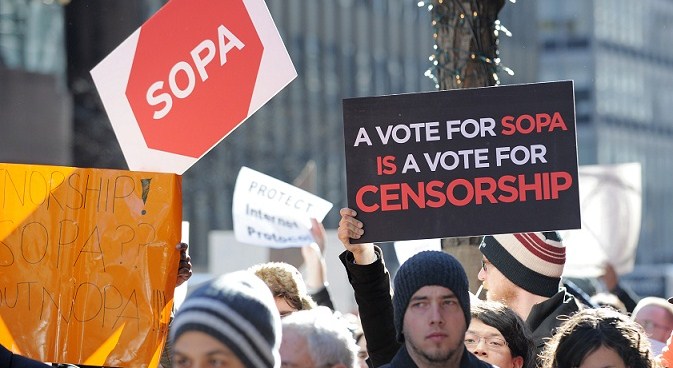Today, Amnesty International joined more than 100 organizations, academics, startup founders and tech innovators to sign on to a Declaration of Internet Freedom, a set of five principles that—if realized—would prove monumental in the longstanding fight for online freedom and universal human rights.
Many of these groups also banded together to educate about the risks and advocate for the defeat of the PIPA/SOPA bills in the US Congress (to read about our concerns with the bills, read this post).
The principles in the Declaration are simply stated:
Expression: Don’t censor the Internet.
Access: Promote universal access to fast and affordable networks.

